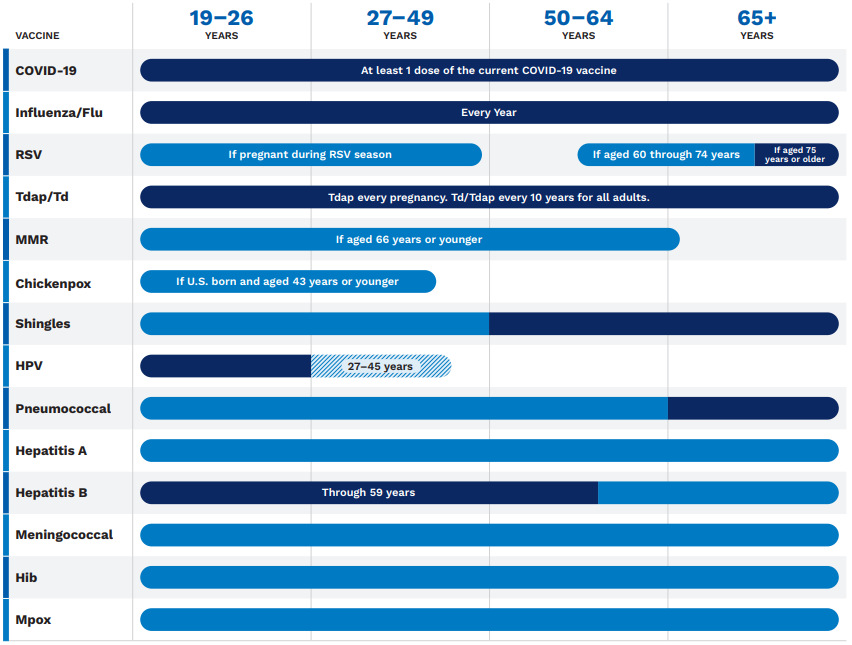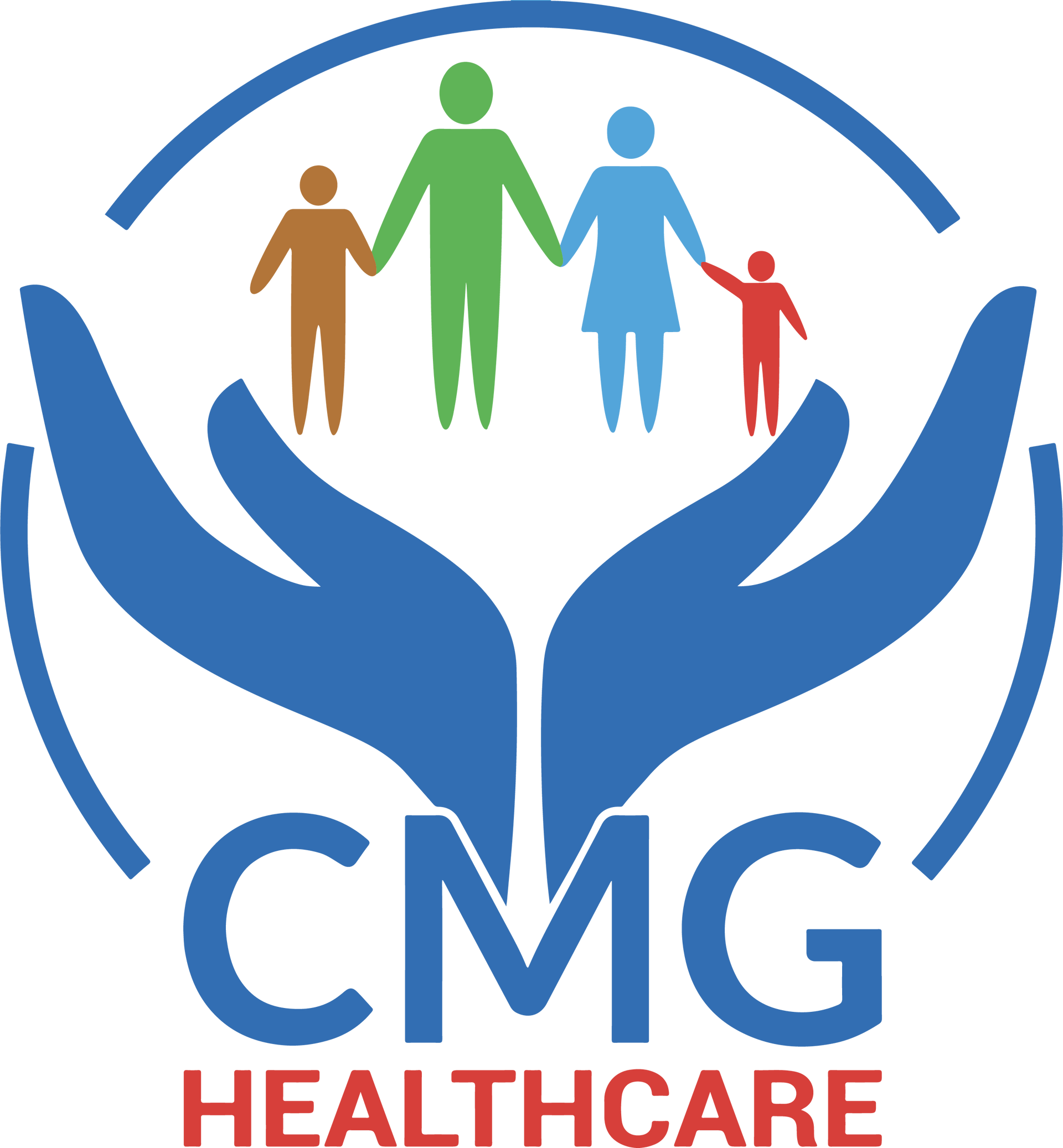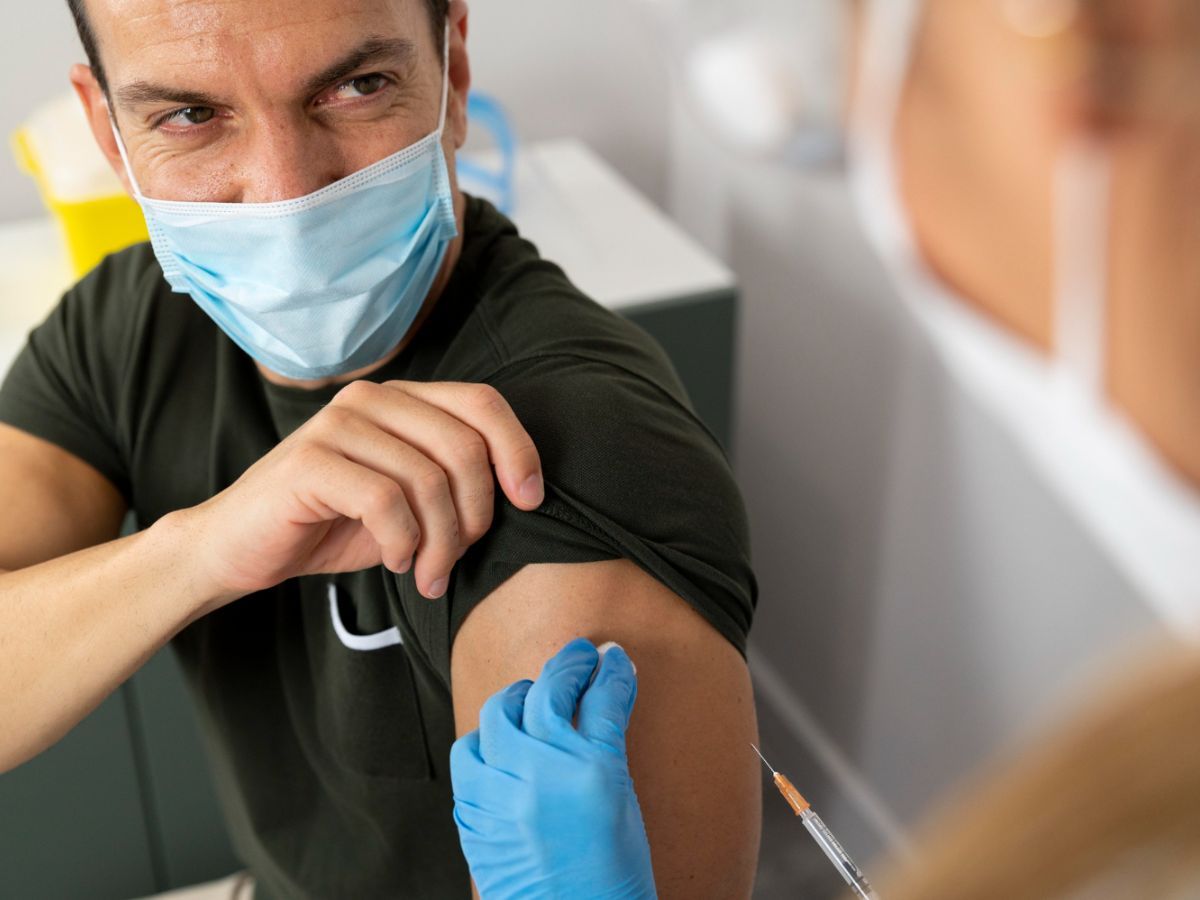National Immunization Month: Ensure Your Vaccines Are Up to Date!
Fall is approaching, and so too are the flu and other viruses. This National Immunization Awareness Month, take a moment to ensure your vaccinations are up to date.
Respiratory viruses can lead to some serious health issues, especially for those more vulnerable to severe symptoms. But here's the good news: by keeping your vaccinations current, you're not just protecting yourself—you're also helping safeguard your community from these seasonal threats.
Vaccinations are one of the best tools
Clinica Medica General (CMG) offers to prevent the spread of viruses and lessen the impact if you do get exposed. Whether it's a flu shot, a COVID-19 booster, or an RSV vaccine, we've got your back and are here to guide you every step of the way.
Keep Your Vaccines Up to Date
The Importance of Immunizations
On an individual level, vaccination appointments may seem routinary. However, vaccination programs have been crucial in significantly reducing the spread of infectious diseases on a global scale.
Here’s a brief timeline of key milestones:
- 1796: Edward Jenner develops the first smallpox vaccine, leading to the eventual eradication of smallpox by 1980.
- 1950s: The introduction of the polio vaccine has nearly eradicated the disease worldwide.
- 1960s–1970s: Widespread vaccination programs significantly reduced measles, mumps, and rubella cases.
- 2000s: Introduction of vaccines for newer threats like HPV and Hepatitis B, further reducing global disease burden.
How Vaccines Prevent Disease Outbreaks
Vaccines work by introducing a harmless component of a pathogen, known as an antigen, to the immune system. This antigen triggers the immune system to recognize and fight the specific virus or bacteria without causing the disease.
When you
get vaccinated and maintain your immunization schedule, your immune system produces
antibodies
and memory cells. These cells can quickly respond if you get exposed to the actual pathogen in the future. This long-term investment in your health means that vaccinated individuals like you can look forward to a future with a reduced risk of catching and spreading infectious diseases.
| Health Tip: |
|---|
| Herd immunity protects everyone, especially those who can't get vaccinated, like infants and seniors. When most of the community is immune—thanks to vaccination or past infection—disease spread slows or stops altogether. Without enough immune people, diseases can return, causing outbreaks and preventable suffering. |
Common Vaccinations to Consider
Use this checklist to ensure you and your family are up to date on essential vaccinations.
Childhood Vaccines:
- MMR (Measles, Mumps, Rubella)
- Polio (IPV)
- DTaP (Diphtheria, Tetanus, Pertussis)
- Hepatitis B
- Hib (Haemophilus influenzae type b)
- Rotavirus
- Varicella (Chickenpox)
- Pneumococcal (PCV)
- Hepatitis A
- Meningococcal
Adult Vaccines:
- Influenza (Flu)
- Shingles (Herpes Zoster)
- Pneumococcal (Pneumonia)
- Tdap (Tetanus, Diphtheria, Pertussis) booster
- Hepatitis B (for adults at risk)
- HPV (Human Papillomavirus)
- Meningococcal (for at-risk adults)
- RSV (Respiratory Syncytial Virus)
COVID-19 Vaccines:
- Initial series (2 doses)
- Boosters (as recommended by health authorities)
Travel Vaccines:
- Typhoid
- Yellow fever
- Hepatitis A (for travel to certain regions)
- Japanese encephalitis
- Rabies (for certain travel or occupations)
- Cholera
- Malaria prophylaxis (medication rather than a vaccine, but essential to consider)
Stay Protected, Stay Healthy
At Clinica Medica General, we understand the importance of high-quality care. You can call us at 213-521-5858 ext 101 to inquire about your adult vaccine schedule or book an appointment.
How to Check Your Vaccination Status

Table 1: Check the CDC’s national immunization schedule for recommended vaccines
A consistent immunization program effectively blocks countless potential outbreaks. It may sound like a no-brainer, but many people tend to forget how many doses they still need or at which age a certain vaccine is required.
Here's a brief guide on how to check your immunization status and get up to date:
1. Review Your Immunization Records
Gather your immunization records. These records may be kept by your doctor, in your health file, or available through state or local health departments. Reviewing these records will help you identify which vaccines you received and when they were administered.
2. Consult with Your Physician or Family
If you need help verifying your vaccination status or incomplete records, contact your physician or family doctor. For current CMG patients, you may request your medical records through:
- Fax: Send a fax to 888-768-1232 to ask for your medical records.
- Phone: Call 916-518-0888 ext 50090 for assistance in obtaining your records.
Your physician can review your vaccination history and recommend any additional vaccines you might need based on your age, health conditions, and lifestyle.
3. Use Online Tools and Resources
There are several online tools and resources available for tracking and managing your vaccinations:
- State Immunization Information Systems (IIS): Many states have IIS, which allows you to access your vaccination history if it has been reported to the system. For Los Angeles residents, you can use this link to get your Digital Vaccine Record: myvaccinerecord.cdph.ca.gov/.
- Personal Health Apps: Some apps and digital health platforms offer features to track and manage your vaccination history.
- CDC's Vaccine Schedule: The CDC provides a comprehensive vaccination schedule for adolescents, children, and adults (table 1). You can find it on their website to compare against your records.
Preparing for Your Vaccination Appointment
After verifying your immunization status, remember to pack these items for your appointment.
- Photo ID: Carry a government-issued ID or another form of photo identification.
- Insurance Card: If applicable, bring your health insurance card to verify coverage.
- Previous Vaccination History: Bring a copy of your immunization records or vaccine card if you have one. This helps the physician or care staff track your vaccination history and ensure you receive the appropriate vaccines.
- Pre-Visit Forms: If you were asked to fill out any forms or questionnaires before your appointment, make sure to bring them completed.
- Medical History: Be prepared to provide information about any medical conditions, allergies, or current medications, as these can impact vaccine recommendations.
- Co-Pay or Fee: If applicable, bring a method of payment for any co-pays or fees not covered by insurance (e.g., credit card or cash).
- Eligibility Documentation: For certain vaccines, such as travel vaccines or specific programs, bring any required documentation that proves your eligibility.
With vaccination, you can protect your health and actively contribute to raising vaccination rates in your community.
Protect Your Health with Clinica Medica General
As National Immunization Awareness Month rolls around, it’s the perfect time to gear up for fall and winter by staying on top of your vaccinations. Take a moment to review your immunization records, chat with your doctor, and make sure you’ve got all the essentials ready for your appointment.
Whether you’re updating your vaccine schedule or starting fresh, our team at Clinica Medica General is here for you. With over 35 years of serving the Greater Los Angeles Area, we specialize in providing individualized personal treatment tailored to your needs:
- Comprehensive COVID-19 vaccinations: Available for adults, children, and adolescents.
- Spanish-speaking team: Clear communication in the language you're most comfortable with.
- Reliable expert care: Benefit from our proven track record of providing quality care to the Hispanic community.
Ready to stay protected? Don’t wait! Call us at 213-521-5858 ext 101 to book your vaccination appointment today.
Get Back on Track














